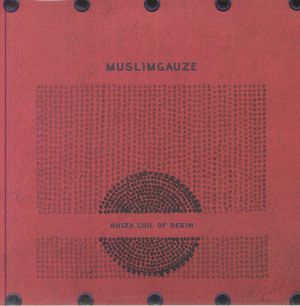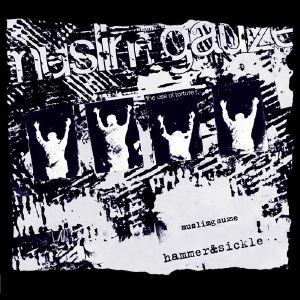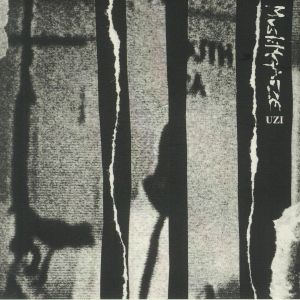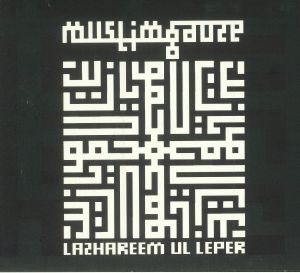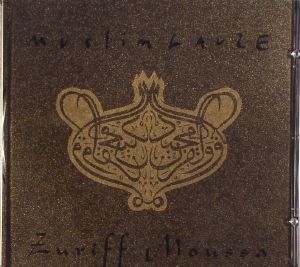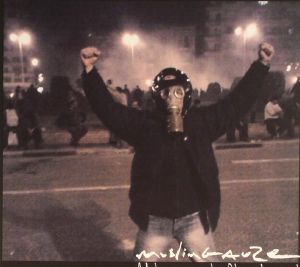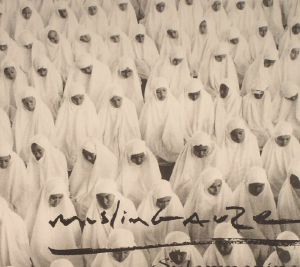Receive new release alerts for Muslimgauze
Filter
Featured
Release Title
Price
MUSLIMGAUZE Vinilo y CD
Browse the latest Vinyl & CD releases by MuslimgauzeSimilar artists:
Artículos del 1 al 12 de 12 en la página 1 de 1
Rhiza Coil Of Resin (CD in hand-made sleeve limited to 200 copies)
Cat: SONG 28CD. Rel: 17 Dec 24
Experimental/Electronic
Review: Even by the standards of the late, great Bryn Jones AKA Muslimgauze - an artist whose enormous catalogue has only grown since his death in 1999 - Rhiza Coil of Resin is something of an obscurity - a set previously only available as part of a rare box set. It was reportedly recorded at some point following the release of Narcotic (1997) and explores many of the same sonic themes. Here available as a standalone CD for the first time, the five tracks variously touch on lo-fi, delay-laden drum & bass ('Deceive For Yourself'), redlined bass and mangled breakbeats (both takes on the suitably heavy 'Arab Quarter'), experimental electronic noise meets ambient acid ('Why Iraq') and deep, dubbed-out trip-hop ('Effendi') - all peppered with his usual Arabic spoken word samples, field recordings and found sounds.
… Read more in stock $15.37
Intérprete: Juno Recommends Leftfield
in stock $36.88
Review: The late great Muslimgauze is a cult figure when it comes to experimental electronic music. He made several revered records that have been reissued since his death and helped to reassert his status. Maroon is a work that like much of his output brings space, colour, depth, and illusion to sound. It is densely layered and textured and finds Bryn Jones, the Mancunian behind Muslimgauze, assaulting all the senses. From the rusty sounds and smeared voices of 'Thimble Cups Of Urdu' to the dense collage of drones, tin pot hits and obscured mutterings of 'Harem Of Dogs' this is a brilliantly idiosyncratic work.
… Read moreIntérprete: Juno Recommends Leftfield, Juno Recommends Experimental
in stock $31.03
Review: Early on in Muslimgauze's (Bryn Jones') career, the musician released two ultra-mysterious releases on the equally mysterious label Hessian, which some speculate might've been comprised entirely of Jones himself. Hammer & Sickle was one of these two early LPs from the faux Arabic auteur, and was notable for its distinct lack of any back cover artwork (who needs a visual stimulus when you've got such great music on board?). Though still indicative of Jones' work as Muslimgauze, superfans will note that this release sounds a little more formative than some of his later releases, owing to its lessened use of Middle Eastern instrumentation and sparser production in general. B-sider 'Fear Of Gadaffi' is the most intermittent in this regard, revelling more than anything in the simple effect of spring delay on sampled, freeform perc hits.
… Read more in stock $18.73
in stock $16.21
Lo Fi India Abuse (remastered) (limited LP + insert)
Cat: VOX 074LP/AKT07. Rel: 10 Jan 23
Experimental/Electronic
Intérprete: Alexis Le-Tan, Juno Recommends Leftfield
in stock $23.19
in stock $33.52
in stock $17.05
in stock $18.73
in stock $17.61
in stock $18.73
in stock $18.73
Artículos del 1 al 12 de 12 en la página 1 de 1

 USD
USD





